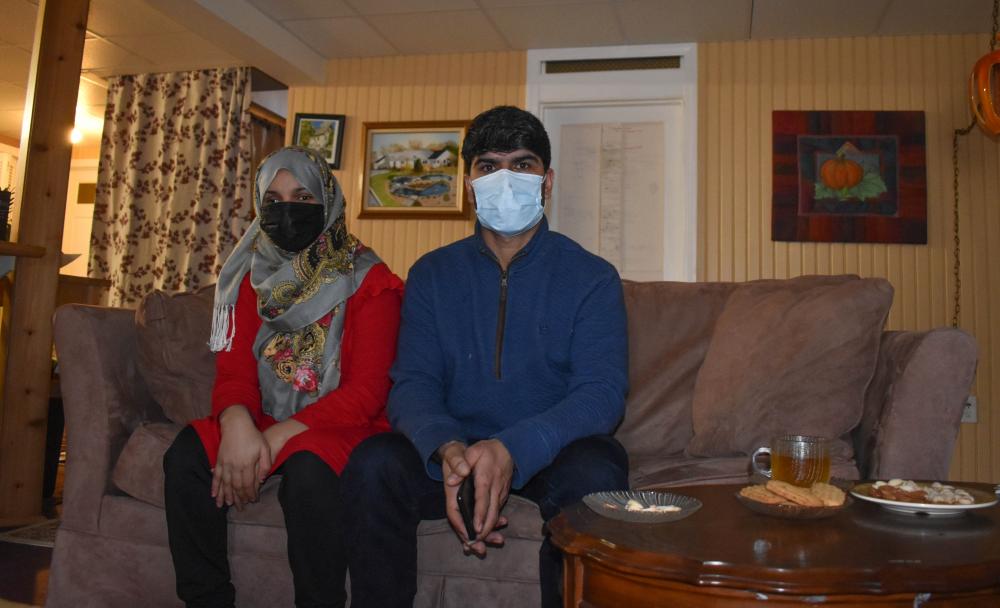Afghan refugee recounts family's journey to Dartmouth
It was the dead of night on Aug. 26, 2021 when a former Afghan National Police officer received a phone call from a coworker with a dire warning: “You need to leave Kabul now.”
Eleven days before, the capital city had fallen to the Taliban and the militant group was beginning to “make an example” out of those associated with the former government.
Up until that point in his life, he and his family had hardly even thought about the United States, let alone living there. But because of that late-night phone call, a family of refugees is now safe in Dartmouth’s Padanaram Village.
“It all happened so fast,” he said. “We needed to get out.”
The refugee wished to remain anonymous, out of fear against possible Taliban retaliation against family and friends still residing in Afghanistan.
Even before his home fell back to Taliban rule, the former officer said life in Kabul was still far from ideal.
He noted that under Former-President Ashraf Ghani’s rule, he still had to live under strict rules including nightly lockdowns. But once the U.S.-backed Ghani government collapsed, he said “things got much worse.”
The refugee said in the days following the fall of Kabul he was beaten by the Taliban and that they had taken the lives of many of his family members.
His wife also survived an explosion that left her blind in one eye.
“I chose to leave [Afghanistan] for the safety of my family,” he said.
Upon getting the call from his friend, he took his pregnant wife, one-year-old daughter, and three of his wife’s brothers to the German Embassy in search of asylum. Once they reached the embassy, they were granted passage to Kabul’s airport to leave their homeland.
Along the way, he said Taliban forces “would do anything to scare us off.”
“They’d fire toward cars and in the air — anything to keep people away from the airport,” he said.
Thankfully, he said, his family safely made it to the airport, managing to leave with only the clothes on their backs. That same day, a suicide bomber would kill nearly 200 people at Hamid Karzai International Airport, including 13 United States troops.
Due to stress and trauma from the Taliban takeover and sudden escape from their home country, his wife suffered a miscarriage.
Over the next few months, the family of six was placed in refugee camps in Saudi Arabia and Qatar, along with a processing station in New Jersey — where they were given social security numbers, work authorization, and one-time stipend to help the family get set up in their new country.
“I’m very thankful to the American government,” he said. “Everything was smooth getting here to the United States.”
On Dec. 20, the refugees finally arrived in Dartmouth.
While the family is beginning to get on its feet, adapting to New England life is still an ongoing process.
The father recently started a job at a restaurant on Route 6, while the three brothers are taking English language classes at Dartmouth Middle School and Dartmouth High.
The patriarch of the family is also learning how to drive on the New England roads, something he said is much easier than back home where traffic is even more hectic.
“Compared to driving in Kabul, I’m glad I’m learning to drive here,” he said with a laugh.
Although it will take some time to get used to life in Dartmouth, the refugee said the community has been nothing but welcoming to his family.
Since the family’s arrival in December, volunteers from St. Peter’s Episcopal Church have been gathering donations to help get them settled after months of moving around.
“Here I’m a stranger and these people help me out,” the refugee said. “People are so friendly.”
He added that he’s been especially grateful to the South Dartmouth resident who volunteered to host his family, until they can live out on their own.
“She’s done so much for us and I cannot thank her enough,” he said. “I feel so safe and secure with her.”
While the refugees miss their homeland and family, the husband said they’re very happy to finally be able to live in safety and stability.
“I feel like I’m home,” he said.













